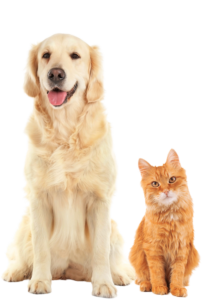There are NO REGULATIONS IN THE PET FOOD INDUSTRY! Yes, I do realize writing in capital letters is basically yelling for the written word. I meant to do that. Usually, the only disclaimer I make for each of my blogs is that I am not a medical person. I work at the Southampton Pet Hopsital, I am married to a specialist who is Boarded in Canine and Feline Medicine, and I have a sociology degree. I feel that I also need to tell you that I sell pet food. I don’t have shares in any pet food company, and we only carry food that is backed up with research and science. There. Now we can get on with what’s really important.
First of all, dogs are omnivores. That means they need other nutrients besides meat in their diet. We do not purport that raw food diet – basically raw meat – bones and all. All sorts of bacteria such as salmonella and e coli can be on raw meat. Your dog, or your family might get very sick and it doesn’t meet (no pun intended) all of the nutritional needs of your dog. Last week I had a fellow come in looking for a “wheat free” diet for his pet. When I asked him why he wanted a wheat free diet, if there was any specific reason, he said it was his preference and nothing more. There wasn’t any medical reason, he didn’t have an Irish Setter with a Gluten-sensitive Enteropathy (which is extremely rare by the way), he just wanted one. We found one made by Hill’s, which made him happy, but really, I think he bought it for the wrong reasons. I realize alot of people are cutting wheat out of THEIR OWN diets, but your pet’s digestive system is different. All species are not the same, so be sure to investigate the science behind your pet’s food. If there isn’t any research behind the food (and NOT just palatability studies), don’t get it.
Again, there are no regulations in the pet food industry. Food is labeled by weight, not by volume the way human food is labeled. So, wet chicken (not breasts – often beak, feathers and intestines in some cases) weighs more than dried corn. It doesn’t mean that there is more chicken that corn in the food just because it’s the first ingredient on the label. Food labels are almost impossible to read. It’s better to find a good company with research by veterinarians behind it and stick to it. That leads me to another point. Because pet food isn’t regulated, one batch of food might be very different from another. So, you find a food that is working well, and then suddenly your pet isn’t doing so well … does the company test every batch of food? Do they adhere to self-imposed regulations for the content of their food? Do they offer a guarantee? Do they have experts formulating their food based on your PET’S nutritional needs or is it just marketing?
We are what we eat. Your pet can be a healthy cat or dog based on what you feed them. Likewise, they can be an unhealthy dog or cat based on what you feed them. I know healthy food costs more, but if your pet remains healthy, it’s way cheaper and less worrisome in the long run.



